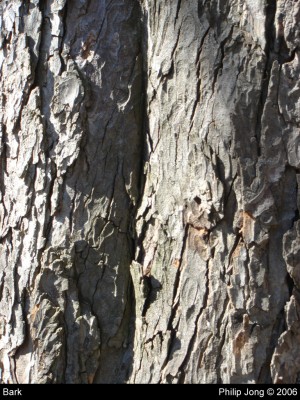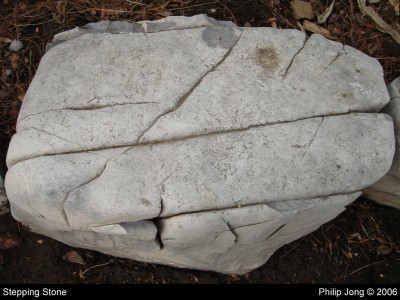Saturday 15 April 2006
The Reality of Reality Television
As with sitcoms, reality television has grown over the past decade to define its own genre. The origin of reality television owes not to shows such as Survivor or The Real World but to programs such as Candid Camera and others from the 1950s and earlier. While the definition of reality television is still in flux, most depict situations of so-called unscripted events that feature ordinary people in real life situations. It is attractive television programming for the networks that produce it, for the participants who take part in it, and for the audience who watch it. For the networks, these shows are often cheaper to produce as they command no television stars who demand big salaries. For the participants (some of whom are making a living appearing on these shows), these shows offer the thrills, the materialistic rewards, and their fifteen minutes of fame. For the audience, the motivations behind watching these shows are likely multiple. For some, it is the rush from watching competition between contestants unfolding in real time. For others, it is the buzz from cheering on the winners or the underdogs. Unfortunately, many viewers also watch these shows for the guilty pleasure of seeing participants failed, humiliated, or dejected by their peers. Misery loves company! The latter motivation is a sad reflection of the selfish human nature brought out by these television shows. We must not forget that there is really no reality in reality television. It is as artificially created and prescripted as other television genres. The only difference is that both the participants and the audience choose to be blinded from it, in exchange for a momentary escape from their real daily lives.
By Philip Jong
• At 01:01 AM
• Under Column
• Under Play
• Under World
Public Post •
Comments •
Trackbacks •
Permalink
Saturday 01 April 2006
Bark
 |
By Philip Jong
• At 05:38 PM
• Under Media
Public Post •
Comments •
Trackbacks •
Permalink
Wednesday 15 March 2006
Accessing The Global Village Of Internet
Earlier this month the city of Toronto in Canada announced a plan to implement citywide wireless hotspot access to the internet. The plan would use radio access transmitting points mounted on street lamps to provide of a blanket of WiFi (Wireless Fidelity) coverage throughout the city to the public. The service would be run by a municipal-industry partnership between the city and Toronto Hydro. Such an initiative is similar to those already introduced in several other cities in North America, including San Francisco and Philadelphia. If successful, this framework will bring Toronto one step closer to the true vision of the Global Village put forth by Marshall McLuhan in 1961. Yet, while the ideal of a Global Village has been thoroughly debated to date, the practice to which this vision should be carried out has not been properly eluded. This is because any mass exposure of new technology is prone to be abused by a few individuals attempting to take advantage of the innocent public who is less familiar with such technology. For an electronic medium such as the internet, policing against such frauds and abuses on a global scale may not likely be possible. Without due diligence to implement measures ahead that will protect the public, I am afraid that this Global Village can easily be poisoned and all of us who live in it will pay an unwanted price for a technology that we still do not fully understand.
By Philip Jong
• At 01:01 AM
• Under Column
• Under Tech
• Under World
Public Post •
Comments •
Trackbacks •
Permalink
Wednesday 01 March 2006
Snow Clouds
 |
By Philip Jong
• At 05:38 PM
• Under Media
Public Post •
Comments •
Trackbacks •
Permalink
Wednesday 15 February 2006
Is The Canadian Government Stronger Or Weaker After The National Election?
As envisioned by many Canadians, the Conservative Party of Canada had won the national election held last month and defeated the incumbent Liberal Party of Canada. The margin of victory, however, was a small one. The party felt far short of the number of seats needed to form a majority government. With even smaller number of seats held, the newly formed Conservative minority government is leaner and structurally weaker than the Liberal minority government which it has replaced. This translates to an uphill battle for the Conservatives in power when attempting to pass any legislation, since much wheeling and dealing will be needed to curry favor from at least one of the opposition parties in order to gain enough support in the House of Commons. Many of the platform agendas raised by the Conservatives are likely not to be realized in full without compromises to satisfy the oppositions. In other words, our government will remain as a fracture democracy whose own certainty in yet another national election ahead soon.
By Philip Jong
• At 09:24 PM
• Under Column
• Under World
Public Post •
Comments •
Trackbacks •
Permalink
Wednesday 01 February 2006
Stepping Stone
 |
By Philip Jong
• At 01:00 AM
• Under Media
Public Post •
Comments •
Trackbacks •
Permalink
Sunday 15 January 2006
Unwanted Fallout In Canadian National Election
On January 23, 2006, Canadians will cast their votes for a new federal government. For the past two months, politicians from all political parties had campaigned hard to win the confidence of their voters. The lofty promises, the murky platforms, the rumbling leaders’ debates, and the negative campaigns fill the media in attempt to influence the minds of undecided Canadians. Recent polls suggest that this election is a close race between the Liberal Party of Canada and the Conservative Party of Canada, with the New Democratic Party and Bloc Québécois trailing behind. Yet, as the Election Day draws closer, Canadians also begin to question how much changes will truly happen in the national political landscape in the aftermath that will impact on their lives. This may be the case if the election again leads to the formation of a minority rather than majority government. The fallout of this unwanted election result will be more political dealing and wheeling between the parties afterward that will only result in yet another dysfunctional government. The downside of democracy in this election may be the fact Canadians will not have an unified government that will function with an unifying agenda for the betterment of its citizens.
By Philip Jong
• At 09:05 PM
• Under Column
• Under World
Public Post •
Comments •
Trackbacks •
Permalink
Sunday 01 January 2006
Christmas Tree
 |
By Philip Jong
• At 01:01 AM
• Under Media
Public Post •
Comments •
Trackbacks •
Permalink
Monday 26 December 2005
Holiday Woes Of The Heart
For some individuals who are at risk of heart disease, the Christmas holiday season can be a dangerous time for their health. Past epidemiological studies had founder higher incidences of heart attack and heart failure during the winter season as compared with the summer season. Today, Canada’s national newspaper The Globe and Mail published a story on the syndrome that was dubbed the “Merry Christmas coronary” and the “Happy New Year heart attack.” In it, the column cited studies from the US and France but also data from our own research group in Canada to which I belong. The phenomenon is of great public health interest because it remains unclear what preventable measures can be taken by the population to reduce the risks of cardiac morbidity or mortality during the winter season. While the colder outdoor temperature is an obvious potential culprit responsible for the holiday “woes” of the heart, many other environmental factors as well as the behaviours of the population are also likely to be at play. Moreover, I had suggested that it might be the response of the population to the changing environment that is more of a determinant of risk than the actual environment where the population is currently inhabited. For example, the story cited our data showing that the increase in heart attack and heart failure rates is paradoxically higher in Southern than Northern Canada, despite the fact the climate in the north is colder than the south. Future studies should help to discover the underlying causes of this winter danger and derive appropriate public health measures. In the meantime, the public should heed to the advice of the Heart and Stroke Foundation of Canada and use common sense to minimize risky behaviors that may increase the risks of having heart attack or heart failure.
By Philip Jong
• At 01:01 AM
• Under Column
• Under Health
• Under Study
• Under Work
• Under World
Public Post •
Comments •
Trackbacks •
Permalink
Monday 19 December 2005
Is Public Domain Knowledge Database Ready For Public Consumption?
Wikipedia is the poster child of public domain knowledge database. Found in 2001 by Jimmy Wales, the utilitarian goal of this “free” online encyclopaedia is to provide a platform where the “total” knowledge of humankind can be permanently recorded for prosperity. To keep up to date, this online knowledge repository can be continuously edited by anyone who chooses to contribute. With the increasing use of Wikipedia by the public, critics of Wikipedia have raised concerns about the credibility of such public domain knowledge database where no one truly polices the accuracy of the information within.
In November, the trustworthiness of Wikipedia was seriously called into question in an USA Today exposé by John Seigenthaler Sr., a former assistant of Robert Francis Kennedy, about his discovery of a false entry in the online encyclopedia in which he was implicated in the assassination of both Senator Kennedy and his brother President John Fitzgerald Kennedy. Last week, the New York Times reported the perpetrator to be Brain Chase, who entered the false information into Wikipedia as a gag directed against the eminent Seigenthaler family in Nashville where Chase lives. This single act of sabotage exposes the vulnerability of Wikipedia in that the information within can easily be falsified by anyone for unethical gains.
In contrast, the accuracy of Wikipedia on scientific information appears to fair better. In a research paper just published from the prestigious scientific journal Nature, a peer-review comparison between Wikipedia and Britannica Encyclopedia on their contents across a board range of scientific disciplines found that the difference in accuracy between the two encyclopaedias was only small. On average, a scientific entry in Wikipedia contained about four errors as compared with three errors in a scientific entry in Britannica.
The creation of a public domain knowledge base such as Wikipedia is of great benefit to humankind. With proper safeguard to ensure the accuracy of its content, further development of such database should be actively encouraged and not prematurely abandoned because of “teething” problems.
By Philip Jong
• At 01:01 AM
• Under Column
• Under Tech
• Under World
Public Post •
Comments •
Trackbacks •
Permalink